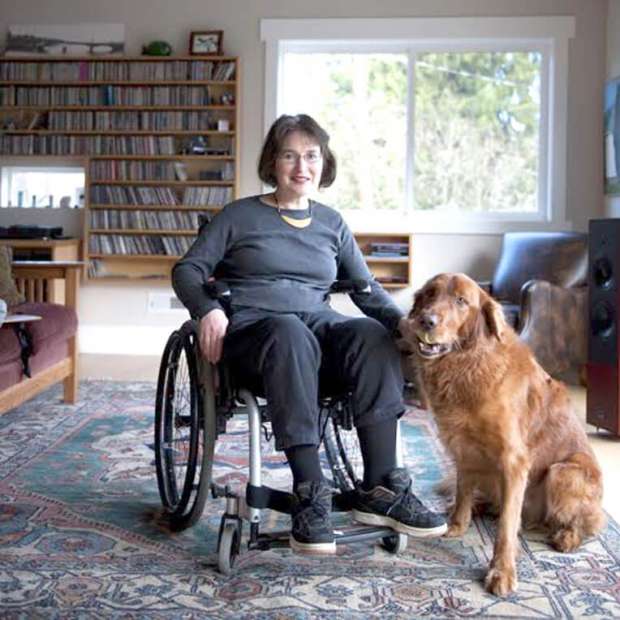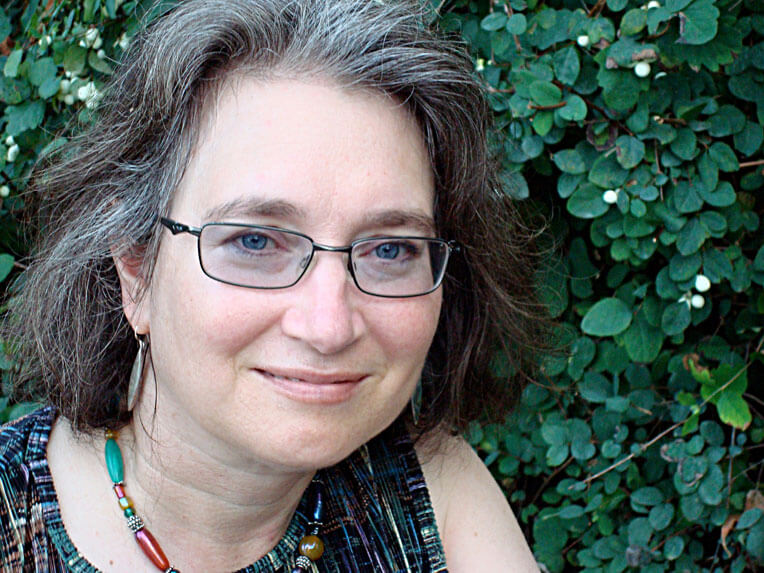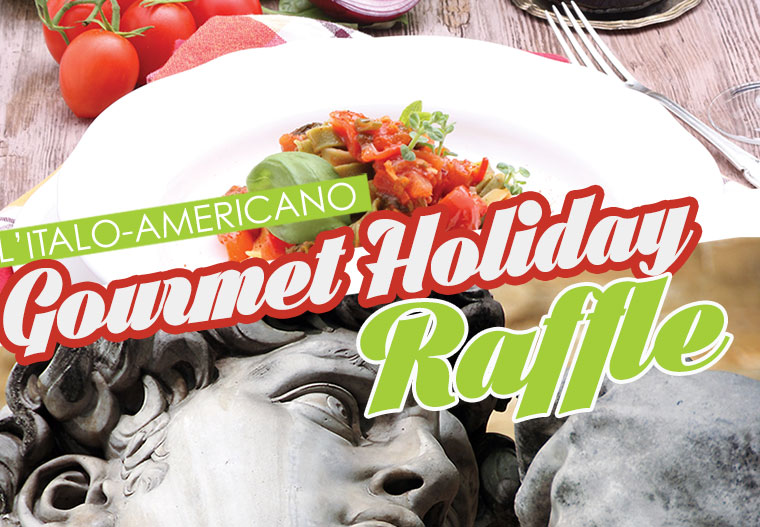“The body tells a story/mostly about loss.” So runs a line from the poem, “Rotator Cuff Vortex” by American poet Lucia Perillo, who died October 16 at her home in Olympia, Wash., at the age of 58.
Diagnosed with multiple sclerosis nearly three decades ago, Perillo’s style of writing is often characterized as raw and unflinching. Her poetry examines, perhaps a bit too closely for some, the topics ever foremost in her mind―disease, suffering, loss and mortality.
Throughout her career, she published seven volumes of poetry, a collection of essays and a book of short stories set in the Pacific Northwest. Her talent brought her to the attention of some of the most notable literary minds in the country.
“I have two words for anyone who wants to know why people turn to poetry in times of need: Lucia Perillo,” wrote David Kirby in the New York Times in 2005.
Perillo was a 2010 Pulitzer Prize finalist for her volume of poetry, “Inseminating the Elephant;” a National Book Critics Circle Award finalist in 2012 for “On the Spectrum of Possible Deaths;” and a 2005 finalist for the Los Angeles Book Prize for “Luck is Luck.”
She was awarded a $500,000 “genius grant” from the prestigious MacArthur Foundation and a Kingsley Tufts Poetry Award with its $100,000 purse. Her short story collection, “Happiness is a Chemical in the Brain,” was a finalist for the PEN/Robert W. Bingham Prize and won the Frank O’Connor International Short Story Award.
This spring, she released “Time Will Clean the Carcass Bones.” The book, published by Copper Canyon Press, pulls together an assortment of poems from Perillo’s six previous collections along with some new work. Perillo was born in Manhattan and grew up in suburban Irvington, N.Y. Her father was a lawyer whose parents were from Italy. Her mother, a librarian, hoped that her daughter would become a doctor and encouraged her to study biology in college.

Diagnosed with multiple sclerosis 30 years ago, Lucia Perillo was a nationally recognized, award-winning poet and MacArthur Foundation fellow. She died in October 2016
But Perillo had her own thoughts on that and settled on a career in wildlife management. After graduating from McGill University in Montreal, she took a job in Denver with the Fish and Wildlife Service. She later moved to California to work at the San Francisco Bay Wildlife Refuge.
It was there that poetry caught her attention. She enrolled in a poetry workshop at San Jose State University taught by Robert Hass, who would later become a mentor as well as poet laureate of the United States.
In the 1980s, Perillo moved to Olympia, Wash., to work at Mount Rainier National Park. When she could no longer handle the physical demands of working outdoors, she turned to writing full-time. Her naturalist background informed her work, and her spot-on observations about the wonders and shortcomings of the natural world feature prominently in her poetry.
She earned a master’s degree in English from Syracuse University in 1986, and taught at Southern Illinois University, Saint Martin’s University and in the Warren Wilson College master of fine arts program in North Carolina. She met her husband, James Rudy, while at Syracuse.
In an interview published recently in Publishers Weekly, Perillo admitted that writing had become difficult because of her illness but she was thankful for whatever work she could still produce. “I have stories that I’ve started but really haven’t finished,” she said.
Never interested in being labeled a “disabled poet,” she strove to write poems that could be read and appreciated for what they were, whether the reader knew her background or not. As she explained in an interview for the Poetry Foundation: “You could read [my poems] not knowing that I was a person who had an illness, or you could read them with that knowledge and have another reading of the poem. So I wanted them to foster two readings, two layers, where you could step into the poem on whatever layer you wanted to step into it on.”
Her writing was highly acclaimed by fellow poets and critics alike. The Washington Post highlighted her “ability to balance the timely and the timeless, and to capture some of the struggles that all humans face, regardless of when or where they live.” Los Angeles Times writer Craig Morgan Teicher praised her fervor and courage, noting: “Each dose of hopelessness is met with some kind of call for singing.”
And poet Billy Collins, former poet laureate of the United States, once said of Perillo: “It is a delight to wander with [Perillo] into strange and imaginative territories. Always, I read her poems with surprise and…jealousy.”
She had her own take on the world and her place in it. Let other poets glory in the brilliant colors and hopeful glimmers that come with the start of a new day. Perillo saw it very differently. A sunrise “often makes me scream,” she wrote, “with the very idea of another day.”
Gifted with this sly sense of humor, Perillo managed to view her disease and its encroachment on her life in a matter-of-fact way. When an interviewer at the American Poetry Review asked her how she fought her disease, Perillo countered with: “I don’t battle M.S. I relent to its humiliations.”
The interviewer pressed further: How do you manage not to fall into despair? “I’ve already fallen,” Perillo responded. “This is the voice from the swamp.”






























